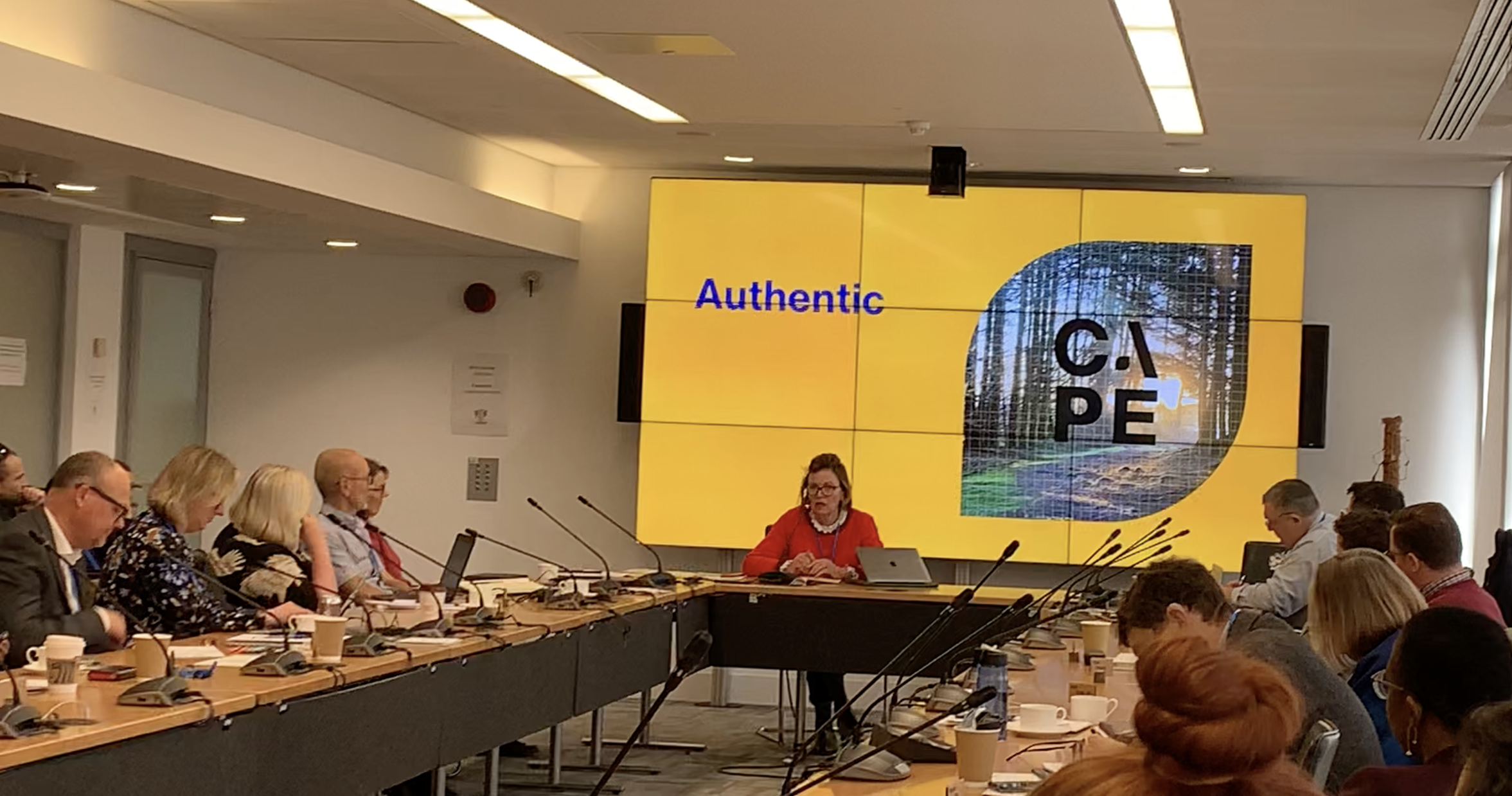Go Tell…
Christine Özden
Global Director for Climate Education
Cambridge University Press & Assessment
“Go tell someone what you’ve been doing today,” were the final words at the CAPE launch event on 30 March at London’s Guildhall.
Mary Myatt speaking at the CAPE launch event
At first, I thought I didn’t need such a prompt; then I realised that I have quite a lot to say about how this new alliance has been invaluable to me. I recently moved into a new role as the first Global Director for Climate Education at Cambridge University Press & Assessment with much to consider. How can we best play our role in the delivery of high-quality climate change education that builds climate literacy (through our curricula, teaching and learning support, assessment and qualifications), emphasises hopeful action and dialogue, supports government policies, and the needs of communities right around the world?
I first came across CAPE’s founders when a colleague forwarded me their report on Sustainability and Climate Change Education and I continue to read and recommend it constantly … (go read if you haven’t yet seen this!).
CAPE fearlessly addresses the tensions, false dichotomies, and paradoxes associated with effectively implementing high-quality climate change education. These include the need to balance a long-term view with the desire for quick wins, acknowledging the contributions of individuals while recognising that effective climate change education requires the support of leadership throughout schools and organisations. It also emphasises the need for a knowledge-rich approach whilst building highly evaluative skills and understanding that this global issue necessitates local solutions.
As with so many evidence-informed discussions around effective climate change education, this launch day saw us go back to the need for clarity of purpose, driven by our contexts and what matters and what is relevant to children and young people. For many of us, it was a timely reminder from the Education Endowment Foundation of practical planning considerations: that in addition to a clear and context-considerate “why”, we also need the “what”, the “how”, the “how well” and, frankly, the “so what” in our implementation plans.
There was talk of the need to be very clear on what the “active ingredient” in any solution is, and then talk of toothpaste! This reminded me of the time my mint-averse middle son started using lemon flavoured toothpaste – he learnt the hard way that we tackle tooth decay not through toothpaste but through fluoride as the active ingredient. As we learn and build evidence around what the active ingredients of effective climate change education are, we will focus on how this happens as well as what works and what doesn’t. The more we do and learn, the better we will get.
“Never lose the joy and wonder” was a parting message from Jack Baker, a PhD student and Learning Associate at the Royal Botanic Garden in Edinburgh. In addition to great clarity of purpose and goals, we saw so much potential for joy and wonder in the work shared by the Avanti Schools Trust, the REAch2 Academy Trust, the Northern Star Academies Trust and colleagues from the City of London Corporation.
At Cambridge University Press & Assessment, teachers tell us they would like support around where to start with climate education, and a clear articulation of what it is (we’re back at that “active ingredient”). They cite a need to know how to include climate education in their curriculum and the lack of professional development support around this. So, it’s fitting then that over the coming months, CAPE will continue to deliver tangibly on its main priority areas around implementation, curriculum and professional development.
This is a diverse and inclusive alliance that will meet you where you are, welcome you and your participation, and benefit from your insights and experience. As the alliance continues to expand, I’m certain that its diversity will be a critical component to their mission, as more and more of us “go tell”.

